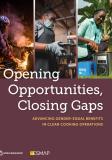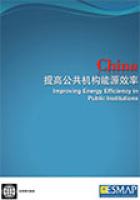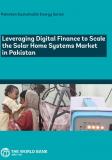Publications
The next several years are critical for achieving lasting results in China’s relatively new energy efficiency program for public institutions. Even though the public sector in China is a fairly small consumer of energy compared to other areas of the economy, for several reasons it is an important sector to focus on with efforts to achieve energy efficiency. For one, the government can lead by example to affect and inspire private sector entities and citizens to pursue similar actions. Also, energy conservation projects in public buildings worldwide have been known to have a multiplier effect and influence the behavior and life-style choices of public building users. Energy savings in the public sphere avoid waste and lead to a better use of public resources, thus freeing up budgets for other purposes.
However, achievement of energy efficiency results in the public institutional sector is particularly daunting, with unique challenges compared to more commercialized sectors such as industry. These include a lack of incentives, insufficient financing, and poor technical capacity to effect efficiency improvements. This report sets forth a number of specific recommendations to overcome these challenges.
Despite this, China has made impressive progress in its program so far, especially during the last four years and especially related to institutional organization and target setting. Absolute energy use is still increasing, but energy intensity in public buildings (the use of energy per employee or per square meter) is declining. To make further progress, China also can benefit from the experience of other countries, some of which have decades of experience working to overcome the special challenges of energy conservation in public institutions. This note summarizes the main recommendations from a World Bank review of both China’s recent efforts and relevant international experience.


